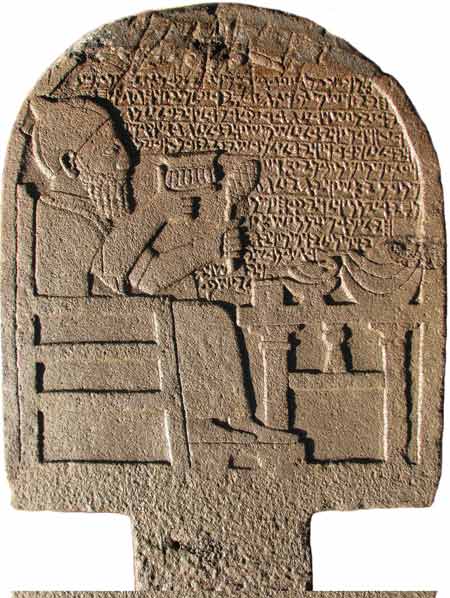The Human Soul: An Ancient Idea

A friend recently told me that he had finally, in middle age, found his soul mate. She was a woman he barely knew, but he was willing to give up everything to be in her sphere. With glassy eyes, he described how they were special, destined to find each other, and that in coming together they made each other whole.
It was hard to not laugh at my friend's pronouncement of wandering souls crashing together, because most adults are long past that ephemeral kind of love and way into the hard reality of day-to-day living with someone, no matter the condition of their soul.
But my friend would be heartened by the discovery by archaeologists from the Neubauer Expedition of the Oriental Institute at the University of Chicago of a stone slab with an inscription that confirms that people like him have been into the idea of a soul for a very long time.
The slab, or stele, was recovered from an Iron Age city called Sam’al in Turkey. It dates to around the 8th century B.C. On the 800-pound, three-foot-tall piece of rock was an incised picture of a man, the deceased, who was presumably cremated, and words that explained that the soul of this man now resided within the stone slab.
What is it with humans and the idea of a soul? The ancient Greeks, who were around about the same time as the slab was cut, also loved the idea of a soul, and most cultures and religions today buy into it as well. Yet there's no evidence that such a thing really exists. But still, even the most cynical of us is always trying to save our souls, damn other people's souls, and searching for soul mates.
It's hard to say exactly when the idea of a second self came into play. Presumably the recognition of a soul appeared hand-in-hand with human consciousness, and it was probably voiced when we had language to put the idea of a soul into words. That would place the time frame for a soul around 200,000 years ago, when humans experienced a cultural explosion which they expressed in art, clothing, and evidence of religion.
Clearly, at that point and beyond, humans had moved beyond solving how to find enough food, and they were using their excess brain power and leisure time to think of other things.
Sign up for the Live Science daily newsletter now
Get the world’s most fascinating discoveries delivered straight to your inbox.
In that sense, the idea of a soul, or any kind of human spirituality, might simply be the product of too much brain and too much free time.
It might also be an evolutionary strategy that takes us away from the anxieties of self-consciousness. Once fully modern humans knew they could die, it probably made sense to pretend that no one really died but that some part of us lived on into the cosmos.
Given the vagaries of ancient life, it probably also made sense to invent souls that had the power to haunt and cause harm to explain all the bad stuff in life.
In fact, every culture, even today, has some concept that separates the spirit from the body, confirming that like my dreamy friend, humans seem compelled to think of themselves as something more than the sum of our biological parts, even if that belief makes us do foolish earthly things.
Meredith F. Small is an anthropologist at Cornell University. She is also the author of "Our Babies, Ourselves; How Biology and Culture Shape the Way We Parent" (link) and "The Culture of Our Discontent; Beyond the Medical Model of Mental Illness" (link).
<a href="http://answers.polldaddy.com/poll/1146986/" >Human souls are ...</a> <br /> <span style="font-size:9px;"> (<a href="http://www.polldaddy.com"> polls</a>)</span>









